|
Do not pick up an Eloisa James book expecting to find a meek, retiring miss inside. Or at least, don’t expect her to stay meek and retiring long.
Eloisa James’ books are about romance, every delicious second of it, but they’re also about women who become confident in themselves and who they are—if they aren’t from the book’s outset. These women are privileged—they’re white, of the upper-class (even if they weren’t exactly born with a silver spoon in their mouths or if they were but said silver spoon was ripped out due to a father's/brother's mismanagement of funds)—and presumably have the appearance if not the actual reality of being faithful Christians—but they’re also oppressed in some ways, living as they do in what is undoubtedly a man’s world. They’re regularly left poverty-stricken by men or given in marriage without their permission or told when and where they can travel and how they can or cannot dress, etc. But what I love about my favorite James’ women is that they seize control—they are creative and resourceful and see a way out of their constraints that’s in the end fulfilling to them as characters and also perfectly satisfying in a HEA way. That’s what we get with Lavinia Gray in Born to be Wilde, the third, and my favorite thus far, in James’ Wildes of Lindow Castle series. Lavinia has learned that her exacting mother has been stealing from various young women in their lives in order to fund a laudanum habit. Not only does Lavinia no longer have a dowry; she has to face the consequences of her mother’s actions, not only on the two of them, but also on the women who have been stolen from. As a result, at the beginning of the novel Lavinia finds herself doing something unexpected: proposing to Parth Starling, the richest man in England and the man she has teased unmercifully in a (successful) bid to draw a response from him. Parth says no. He suspects that Lavinia has proposed due to monetary concerns (even if he isn’t aware of the crimes her mother has committed) but that’s not what bothers him, precisely. He has a different woman in mind, an Italian countess, and he’s always looked on Lavinia as someone who is extremely beautiful, but also maddeningly flip and frivolous. But he does offer to help Lavinia find a suitable husband who will keep her in bonnets and all the fripperies to which she is accustomed (I’m taking on Parth’s voice here). The will-they-or-won’t-they is of course the most important of their romance story, but tied up in that is the question of whether Parth can respect a woman like Lavinia. He’s a serious businessman and he cannot seem to understand her interest in fashion. (It might seem silly when I describe it like that, but I think that’s part of the book’s point: how we characterize certain interests as “serious” and others as “frivolous” or “superfluous,” and how those characterizations might--and often do--fall along gendered lines.) The key conflict between them is about respect, and James writes Lavinia’s transformation in how she views herself particularly well. This book is about acceptance and love on multiple levels, and as always, James writes those levels beautifully. She’s a master at writing ensembles: her characters live and move through worlds that are lovingly and thoughtfully rendered (James is also an English Lit. professor!), and among loved ones whose love stories we’ve read before and treasured. James' writing, is like her characters themselves, sophisticated. But for all that sophistication, James also writes with heart, and her HEA are always swoon-worthy, particularly in the case of Born to be Wilde. *Other reviewers have called attention to James’ portrayal of Parth, who is half Indian. I obviously don’t deal with that there, but diversity in romance novels—one of the most popular, if not the most popular, genre in contemporary American fiction—is so important. James doesn’t have a lot to say about Parth’s ethnicity except how he ended up with the Wildes, and as other reviewers have noted, occasional references to his physical appearance (which seems to be pretty, pretty good). While I agree that more could have been done on that front—maybe the potential judgment of others could have given Parth and Lavinia some additional common ground—I also felt that the big story here is in Lavinia’s transformation. I’d love to read more about diversity in romance novels as written by WOC and white writers and think that James’ portrayal of Parth is definitely worthy of further study!
0 Comments
Kerrigan Byrne’s historicals are a heady mixture of angst, passion, and redemption that really works for me, despite the fact that usually if I hear the word “angst” I’m like seeyoulaterbye and move on to the next book in my TBR pile. But Byrne has mastered the delicate balance of heavy emotion and Happily Ever After: her characters feel so much, and though there is so much stacked against them and so much that they’ve done wrong—specifically talking here about her male leads in her Victorian Rebels series—they yearn deeply. You see them living in the dark and thinking that’s all they deserve, but throughout her books they move into the light, and it’s a beautiful and hopeful thing.
Her latest release, The Duke with the Dragon Tattoo, continues in this marvelous tradition. Lorelai Weatherstoke, who has a limp from a broken foot that didn’t heal properly, is drawn toward helping the wounded. She nurses a young man who has amnesia and doesn’t remember anything of his past, and she names him Ash. We know that he was a prison inmate—one of the Blackheart Brothers—who was mistakenly attacked in his prison cell, burned with lye, and then left for dead. Ash thinks that Lorelai is angelic, and Lorelai is drawn to Ash in a way that she’s never been drawn to anyone before. They’re both young when we first meet them—Lorelai is only fourteen—and the beginning of their love story is sweet and tender, full of promise. But then Ash leaves for a short trip with her brother, Mortimer, and never returns. Flash forward twenty years to Lorelai’s wedding day, when the infamous and terrifying pirate the Rook comes to steal Lorelai and take her and her sister-in-law aboard his ship. To her great shock, Lorelai realizes that The Rook is Ash…but not. The Rook tells her that the man she knew as Ash is dead. What happened to Ash and can she bring him back? Can she make the Rook feel again? Throughout The Duke with the Dragon Tattoo the Rook/Ash is very resistant to the notion of any kind of redemption. In fact, he spends a great deal of the book insisting that he is just as terrible as everyone says. In the immediate aftermath of her kidnapping, he succeeds in proving this. In one cringe-worthy moment, the Rook/Ash says that it’s not possible for married women to be raped. Though this claim made me wonder if he really was too far gone, he fairly quickly does an about-face, listing what he could bring to a marriage to Lorelai and offering her the opportunity to “use” his “body.” This is an offering which is more meaningful than it might initially seem given that his body has repeatedly been used by the people who held him physically captive over the years. Though the Rook/Ash's verbal assertions of possession of Lorelai are by turns frustrating and thrilling, to his credit, Lorelai also feels ownership over Ash and who they were together. But will memories of the past be enough to overcome the years he has spent doing unspeakable things to get back to her? Is a present with Ash possible? Rich and bold, The Duke with the Dragon Tattoo is another sumptuous entry into the Victorian Rebels series. Byrne writes beautifully and she takes the reader on an inimitable journey that’s surprisingly full of hope, even though there’s so much pain along the way. I received an ARC of this book from Netgalley but all opinions included are my own. GIVEAWAY!Now you might win your own copy of The Duke with the Dragon Tattoo! Answer the question below to be entered in the drawing. The prize is one finished mass market paperback edition of The Duke with the Dragon Tattoo. 1 winner; US entrants, only please.I think that you’re either a vampire person, or you’re not. There doesn’t seem to be a lot of gray area there, in my experience. I’ve been a vampire person since I first saw Buffy the Vampire Slayer and realized that it was possible to save a gymnasium full of people in an impossibly huge dress and win the love of a 90s era Luke Perry. I’ve covered a lot of vampire ground since then and I’m happy to report that we have a new smart, fierce vampire story to add to the conversation: Chloe Neill’s Wild Hunger, the first book in her Heirs of Chicagoland series—a spin-off of her wildly popular Chicagoland Vampires series.
In Wild Hunger, we get Elisa, vampire daughter of Ethan and Merit, and Connor, shifter son of Gabriel and Tonya. They kinda sorta can’t stand each other at the beginning. Elisa and Connor have grown up teasing, taunting, and fighting each other, but Elisa’s return from a long sojourn in Paris gives them opportunity to get to know each other again. What they find is surprising. But they don’t have a lot of time to dwell on that, because Connor is heading to Alaska to re-commune with the Earth and his Pack, and Elisa is headed back to Paris, but first they have to prove that Riley, one of their friends and a member of Connor’s Pack, didn’t murder a vampire at a party celebrating the beginning of European vampire peace talks. Whew. Complicating everything is the monster living inside Elisa. Elisa’s the only existing offspring of vampires, and so it’s easier to hide her little problem: there’s also huge magic inside her. It feels dangerous and deadly, and she tries to suppress it because she knows it’s related to a wicked sorceress and how her mother Merit became pregnant with her in the first place. Only Connor has seen the monster inside Elisa that she tries to ignore. Will it bring them together or pull them apart? Told in first person from Elisa’s perspective, Wild Hunger is deftly told—it’s vivid and gripping. I love a fierce heroine, and Elisa is strong and compassionate, not afraid to risk herself if it might help someone she cares about. It doesn’t hurt that she’s skilled with katanas and has a monster inside her. Elisa's relationship with Connor is pretty chaste and straightforward at this point, but I have my doubts that will last long, particularly since the tension in this world is so high already. Elisa is a vampire and Connor is a shifter, and though they are wildly attracted to one another, a lot of people don’t want those to mix. Add to that volatility fairies, and you’ve got a real powder keg situation. Like in her other books that I’ve read, Neill offers us in Wild Hunger a thoroughly and thoughtfully created world. Though the stakes are always high—we’re talking world domination and peace on Earth, people—Neill doesn’t forego the personal either. Defeating enemies and preventing them from subjugating others to their terror-filled reigns is important, yes, but so are relationships and love. When I left this book—regretfully—I was both satisfied with how the plot worked out and already looking forward to the next one. I have my suspicions about where it will all go, but since Neill is the author, I know I’ll also be surprised. I received an ARC of this book from Netgalley but all opinions provided are my own. All it took was for me to read Amazon’s comparison of Jenn Bennett’s Alex, Approximately to that magnificent piece of cinematic history, You’ve Got Mail, and I was there. (If you know what it means if I were to offer you a bouquet of freshly sharpened pencils, you are my lifelong BFF. That’s it. That’s the only qualification.)
Alex, Approximately is a delightful and also moving concoction of a book. It’s effervescent but with substance. It’s Lana Turner pin curls and surfing wax and classic films and anonymous internet relationships but also flawed parents and people trying not to drown under other’s expectations and learning that being vulnerable is worth it. God, I’m feeling happy just thinking about it. Mink and Alex (screen names) communicate across a classic film festival message board. (It’s so obvious that I have no clue exactly how to describe their communication technique because I’m so behind the times and have thus hodge podged something based on my own teenage internet history.) But, anyway…Alex lives in the same town as Mink’s father, who moved to California after he and Mink’s mom got a divorce. Though Alex repeatedly begs Mink to visit their town for the North by Northwest showing at the end of the summer, Mink refuses to commit. She’s worried about taking their relationship from screen to face-to-face so suddenly. Other things you should know about her: she’s a private person by nature and has trouble sharing her opinions. She writes to Alex, “I blank out and try to read their face to see what they expect me to say, and I just say that.” She’s an “evader,” or, as she specifically calls herself, The Artful Dodger. So when Mink, real name: Bailey, decides to move to her father’s town, she doesn’t tell Alex, and she determines that she’ll find him on her own using her handy dandy Veronica Speedwell skills (she’s my new female detective crush). Along the way, Bailey’s trying to make friends, handle her new job at a completely charming and also insane museum, and deal with her infuriating coworker, Porter, who immediately earns her ire by making fun of her mismatched shoes and putting her on the spot in front of everyone. There was so much about this book that I loved. The chemistry between Bailey and Porter, and also Mink and Alex (real identity unknown), is sparkling, and the town they live in, Coronado Cove, feels like it’s right out of Gidget (Sandra Dee film version). Bailey’s close relationship with her dad is refreshing and heartwarming, particularly because they’re trying to navigate a post-divorce world that doesn’t include Bailey’s mom. And maybe most of all, I loved Bailey’s growth from The Artful Dodger to someone who sticks. Those evader tendencies can be particularly strong in young women—and also 33-year-old women who are trying hard but still feel like they have to include emojis to soften messages on the internet and sometimes feel uncertain when they’re asked a preference and actually volunteer an answer. Alex, Approximately is a love story and coming of age story, and it gave me all the good feelings. I flew through the pages in a deranged fashion and savored Bennett’s skillful, loving rendering of the town and the quirky people who inhabit it. “Read it! I know you’ll love it.” (That’s a quote from You’ve Got Mail, for the uninitiated. I know, my obsession is a bit much, but please let me have this one thing.)
I’ve always been too terrified to watch scary movies, but give me a good gothic novel and I’m in heaven. Especially a gothic novel with romance. Then I’m there with an awkwardly enthusiastic smile and a glitter covered poster-board.
That’s why I always eagerly anticipate a Susanna Kearsley novel. They have some of the things that I find most delicious in a gothic work: a historical and contemporary timeline, in which the contemporary characters are trying to solve a mystery related to the historical timeline; vividly rendered, atmospheric backdrops, often with supernatural elements, whether it’s ghosts, time travel, mysteriously found artifacts, etc.; romance in both the historical and contemporary timelines. Sometimes it’s doomed, sometimes it’s HEA, but it’s always lovely and fills me with the same happiness I get from a peaceful morning: dew still on the ground, pear-colored light slanting in through the windows, and a cup of coffee in my hand. You get the picture. Kearsley’s latest, Bellewether, is set in Long Island and revolves around two timelines: one set during the French and Indian War (1754-1763), and one set during present day. In the present-day timeline, Charley Van Hoek has moved to Millbank, New York after the death of her brother to care for her young adult niece, Rachel, and her house, and to be the curator of the Wilde House museum. The Wilde House is famous for being the home of Benjamin Wilde, a famous Revolutionary War hero, and for being haunted. The locals say that you can see a lantern wandering the path from the house to the water, and they attribute the ghost carrying it to a doomed love story: a French soldier who has "signed the paper giving his parole of honor" (basically a POW, in our terms), was held in the home at the end of the French and Indian War, and he and the young woman of the house—who was loyal to the British, the opposing side—fell in love. The legend says that he was murdered by the young woman’s brother when their relationship was discovered. We get Charley’s perspective, but luckily for us, we also get Jean-Phillipe’s—the French soldier—and Lydia Wilde’s, the young woman. Jean-Phillipe, a soldier born in Canada and fighting for the French, is drawn to Lydia, even though he knows no English and can sense her resentment toward his presence in her home. Lydia is recovering from the loss of her fiancé, who was killed by the French during the French and Indian War. Did Jean-Phillipe and Lydia have a romantic relationship, despite the odds against them? Did it end in both of their deaths, as the legend says? Is there a ghost at Wilde House? The answers are in Bellewether. Though I was a little bemused (perhaps even slightly disappointed) by one plot element (DM me for spoiler-y details!), on the whole this book was exactly what I was craving and expecting. A compelling mystery-romance that kept me engrossed to the very last page; two haunting stories that intertwined; and richly developed historical details that made me think about how we write our history, and that prove once again how wonderful of a storyteller Kearsley is. Pssst! If You Like This Book, Try: Rebecca by Daphne du Maurier, any Kate Morton book, The House at Tyneford by Natasha Solomons, and All the Light We Cannot See by Anthony Doerr. **I was given an ARC of this book from Netgalley, but all opinions provided are my own. The summer that I was nineteen, my boyfriend and I were doing long distance, I had adopted a strange basset hound and christened him Mr. Jones, and my beloved dad was quickly dying of Acute Myeloid Leukemia. When the doctor told us that it would be soon, I thought that I was convinced. When dad died in our living room, I thought that I was convinced. When we buried him and my friends and boyfriend returned to their homes, I thought that I was convinced. But coming to terms with dad’s death happened more slowly, and it was as much about understanding the physical and emotional loss of him as it was understanding the eviscerated landscape of what used to be our family.
Julie Buxbaum’s YA book Tell Me Three Things gets so much right about teenage grief—specifically losing a cherished parent—and that’s part of what I love about it. You’ve probably heard about—or experienced—the hole that’s left behind when someone you love dies. It’s a real thing. But what you might not have thought about is how difficult it is to manage that hole, how there are acceptable and unacceptable ways to do so, and how angry you can get at your fellow grievers when they’re not managing it the way you think they should. You don’t always think about grieving as a family process, and like it or not, part of it is. You’re supposed to try to fill the hole in some ways—you can’t leave it gaping wide open, for all the world to see—but you’re not supposed to fill it all the way because you lost a person you love very much. [And anyway, how could you?, when they were so amazing and irreplaceable and gone.] You’re supposed to observe a mourning period, but you think that they should probably mourn a certain amount of time and you another, because you were a daughter who thought he hung the moon, and she was a wife. You feel like they’ve betrayed everything if you think they’ve moved on faster than they should have. [Later, you’ll understand why you were so upset but also how different it must be to lose a parent versus losing a spouse and how crippling that particular loneliness might be. How devastating the betrayal of losing your partner too soon might feel.] And when you’re angry, you’ll wonder who lost the most here?—definitely you—so why does everyone assume that someone else’s grief should be deferred to? No one tells you how utterly devastating it is when you feel like a lost person isn’t being respected, and when their partner moves on and you feel like you lost both parents. Lost everything, and no one cares but you, and people are angry at you for caring so much. But Julie Buxbaum’s utterly amazing Tell Me Three Things does tell you this, and so much more, and it’s all part of this beautifully devastating story. This book hit me where I live when it comes to my experience of grief: as a person who experienced a beloved parent’s illness at a relatively young age, and who was then faced with the aforementioned family grieving matters. I was several years older than the main character, Jessie, when I dealt with my dad’s illness and death, but I recognized parts of her story like they were mine. This book is incredible. A couple of years after her mother dies of cancer, Jessie’s dad suddenly re-marries and moves them from Chicago to California, without asking Jessie how she might feel about that. It’s an entirely different world there, and Jessie finds herself without friends and even bullied. But one day, not that long after starting her new school, she gets an email from Somebody Nobody (SN), and SN volunteers to be her “virtual spirit guide” throughout her new high school experience. It will be an anonymous relationship--she won't know who he is--but SN can answer her questions and tell her everything she needs to know about surviving there. Jessie finally accepts SN’s offer because it turns out that life at her new school is pretty brutal. Emails turn into texts, and she learns that SN lost someone too, a sister. But his loss and loneliness and isolation have worn away at him too, and he’s nervous about taking their relationship from a screen to real life. Meanwhile, her real life relationships are even more complicated. Jessie has trouble identifying with her new stepbrother and her best friend back home, she resents her new stepmom and her generically designed room, and she feels like her dad has selfishly abandoned her to the new life she didn’t even want. Tell Me Three Things deals with the big things, like being a teenager, dealing with grief, and falling in love, and it does so brilliantly. This is a story of light and shadows, of great nuance, and we’re left feeling torn apart and built back up and like we’ve been seen and maybe we can see other people better, too. It’s an empathetic story and made me feel more compassionately toward who I was/am as a griever but how others were/are, too. It reached to the deepest parts of me. Sometimes you come across an absolutely wonderful book that reminds you of that absolutely wonderful Doris Day-Rock Hudson film, Pillow Talk. You know, the one where Rock Hudson is a cynical playboy with the shag room and Doris Day is the sweet and also gorgeous career woman looking for the one. Suddenly, you’re wishing that you had a party line and a beautiful, sultry voice capable of drawing in a crowd with your rendition of “Roly Poly.”
Kate Meader’s Down with Love is, for me, an even better treat. It's Pillow Talk taken to the modern age. A strong, beautiful heroine who’s passionate, doesn’t pull any punches, and wants to be in charge. A smooth-talking playboy hero who can’t fully disguise that he’s also a decent person, no matter how hard he tries. Sex that will bring the house—or in this case, very expensive Chicago condo—down. And a cast of secondary characters that you know and love, even if you’ve never actually encountered them before. This book made me all kinds of happy. Here’s the plot on a simple level: Max Henderson is a divorce attorney and a player who is still recovering from a broken engagement—even though he would say otherwise. His brother, James, breaks the news that he and his girlfriend, Gina, are getting married and that they’ve hired a wedding player. This is too much for cynical Max to take; there’s no way their marriage will last and also, who would want to spend that much money on one day? Gorgeous wedding planner Charlie Love has heard it all before. But besides loving her job, she believes that what she does—creating beautiful experiences that kick-start couples’ lives together—actually matters. On a personal level, after almost losing her father to a heart attack she’s looking for the one, but she’s dealing with her own issues here: namely a past that some might find unpalatable. Meader has pointed out that this book is a departure for her, and she’s right. Sure, Down with Love has all the good things we’ve come to associate with Meader and her style: an explosive romance, a fantastic dynamic between family members, and a book filled with strong women. But here, those trademark qualities are amplified and we get even more. The book is wildly funny; both main characters have the gift of snark. Told from both Max and Charlie’s points of view, the book has a strong sense of voice, and Max, in particular, plays to the crowd. And the romance between them is big, sexy, and beautiful: you see the weaknesses of both characters and the fact that they’re not a turn-off for each other makes them not a turn-off for the reader. I loved Charlie’s vulnerability and Max’s tenderness. After all, what’s swoonier (is that a word?) than a partner who accepts all of you? Nothing. Okay, maybe a partner who accepts all of you and who is also nicely muscled and has a keen intellect. And a good sense of humor. Down with Love is one of those books that’s going to stay with me for a good, long while, and I’m pretty happy about it. Pssst! If You Liked This: Why mess with a good thing? For more cynical playboy v. optimistic woman looking for her one and only, try the movie Pillow Talk (Rock Hudson!) or Lauren Layne’s Walk of Shame. I received an ARC of this book through Netgalley, but all opinions included are my own. The stars aligned on Saturday and I could have taken a nap—a long, luscious nap, people—and I refused (!) because Cristin Terrill’s All Our Yesterdays had me in its thrall. This YA thriller/time travel adventure/dystopian/romance captivated me--more like held me hostage, to be honest--and this morning, I’m still thinking about it.
This. book. is. so. good. (Someone please read it so that I can discuss it with you and get rid of this excessive feeling.) I can’t discuss too much of the plot on this one because it’s so finely done that going too far will reveal too much—and you need to discover it as a reader. So this is what I’ll say: Em and Finn are in next door prison cells, where they’ve been for months. The world outside has gone to shit. Em discovers a piece of paper in a drain in her floor which tells her that the only option they have left is to kill the Doctor holding them prisoner. She and Finn use a machine to time travel four years to the past so that they can do just that. Then the story explodes and you’re left holding on with a white-knuckled grip. Sound comfortable? It shouldn’t because it’s not. I felt everything--everything—when I read All Our Yesterdays, and the ending is particularly emotional. Told from the perspective of Em and Marina, her four years younger self, All Our Yesterdays gives us so much to dig into, especially when it comes to viewing our past selves. Do you remember the soul-crushing sadness and beauty of being a teenager? How important some things seemed to you then, how invested you were in certain things, and how much feeling you had, especially when it came to matters of love? The hopefulness; the vulnerability. We see it all in Marina, but the time travel element of Terrell’s fantastic book also gives us the benefit of passing time. There’s a special kind of bewilderment, tenderness, and sometimes humiliation through which we can view our teenage selves, and that’s part of Em’s story. Characterization matters aside, there’s the fiercely rendered plot, which starts fast and speeds up to Jason Bourne-like levels (minus the shaky cinematography). Like Chrissy Teigen, All Our Yesterdays has it all. Highly recommended for anyone who likes to read and has a heart. I’ve had a thing for werewolves since Joe Manganiello in True Blood. (How many of you could also say the same? The broad shoulders. The speed. The protective nature. The tank tops.)
Maria Vale takes on the wolf in her haunting A Wolf Apart, part of her The Legend of All Wolves series and the sequel to The Last Wolf. Wolf Elijah Sorensson has the broad shoulders, the speed, and the protectiveness, but he also lives Offland in a suit, separated from the rest of his pack so that he can protect their interests in an outside society that is for the large part unaware of their existence. Living Offland means wearing the clothes, eating the food, and seducing the women that a very wealthy human man would wear/eat/and seduce. It also means performing a role and living apart from his wolf in way that makes him feel like he’s dying. He meets Thea Villalobos, an environmental conservation officer, and she speaks to his wolf because she’s nothing like the posturing world he lives in. She dresses, eats, and lives for herself; she craves her solitude and independence; she refuses to compromise who she is. He’s drawn to her in a way that he’s never been before, but she’s human, and their relationship is forbidden by the pack that’s been part of him since birth. Who will he choose? Himself—the man who lives in a city that’s killing him so that he can protect his fellow wolves, the man who loves someone who would be killed by the pack if their love was discovered—or the pack that’s been part of him and that he is? There are no easy answers in Vale’s book. In this dynamic world that she’s created, wolves are secret, known only to the wolves and their shifter enemies, and they’ll do anything to protect themselves. This isn’t a lighthearted paranormal romance. It’s a darker romance that takes on the heavy work—what happens to someone who is forced to perform in order to protect, and how love—that beautiful, terrifying force—can change someone and make living a lie no longer possible. I loved Elijah’s transformation throughout A Wolf Apart and how it was brought about by his relationship with Thea, even while I hoped for more of the romance between the two. The love between Elijah and Thea is critical to the plot even while at times the romance itself seemed underrepresented. With A Wolf Apart, Maria Vale offers more proof that she’s a mesmerizing, thoughtful writer. Her characters are fully fleshed; you can tell that she knows every part of them and the world that they inhabit. This world that she’s beautifully and tenderly rendered is oftentimes grim, but it’s also one where loyalty, community, and above all, love are possible. They’re more than possible. They’re necessary, and they’re life-changing. Pssst! If You Like This Book, Try: Nalini Singh's Psy-Changelings series. **I received an ARC of this book from Netgalley, but all opinions provided are my own. |
About me.Give me that HEA, please.
Join my mailing list.Want to receive a weekly email with links to my latest blog posts? Sign up below!
Archives
April 2024
Categories
All
|
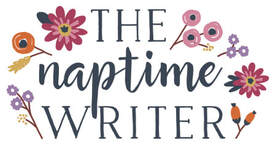
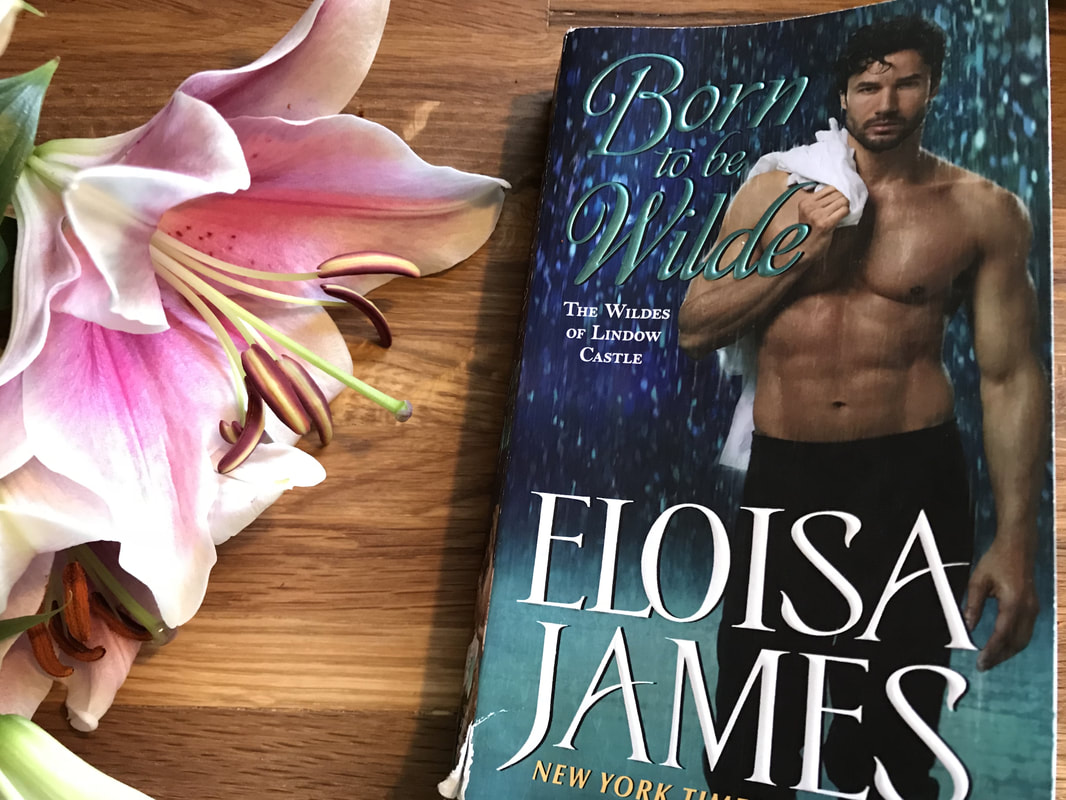
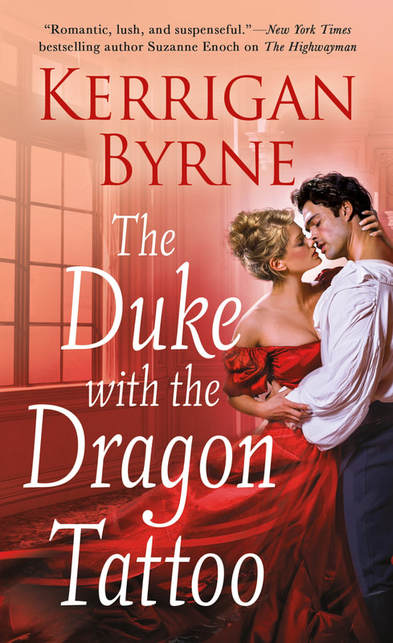
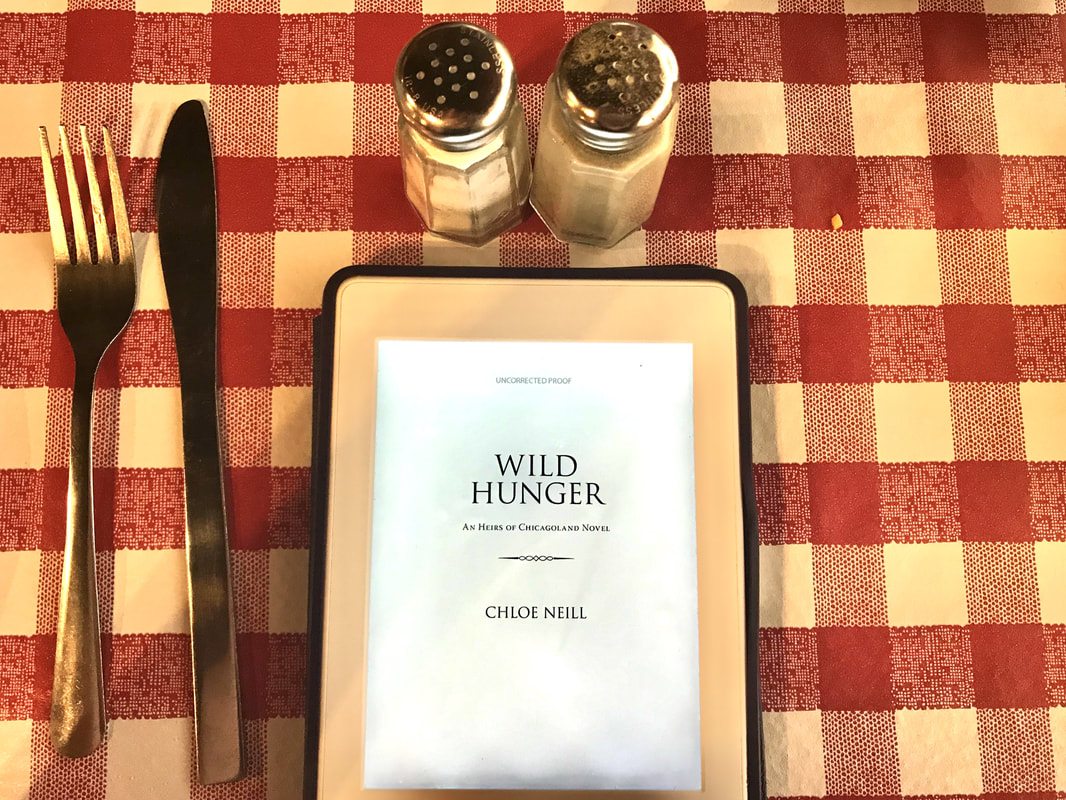
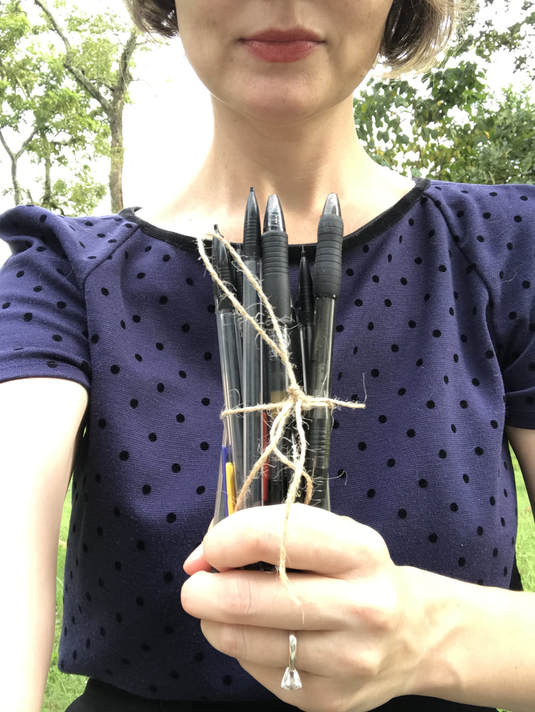


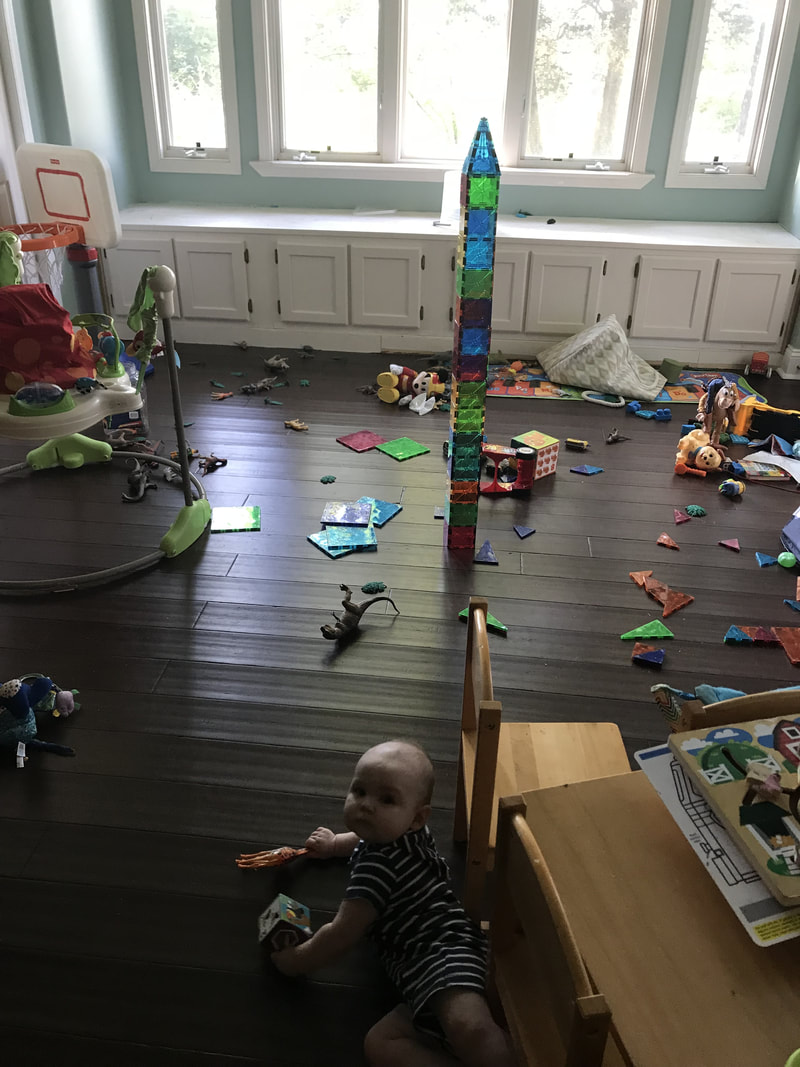
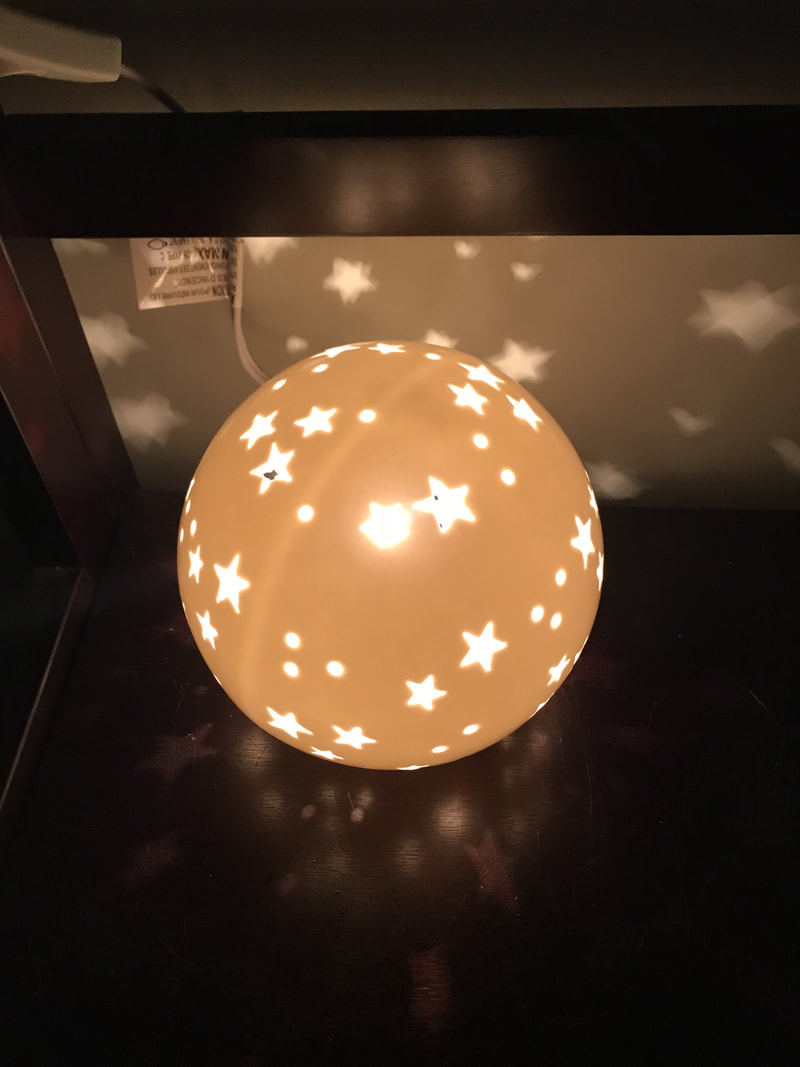

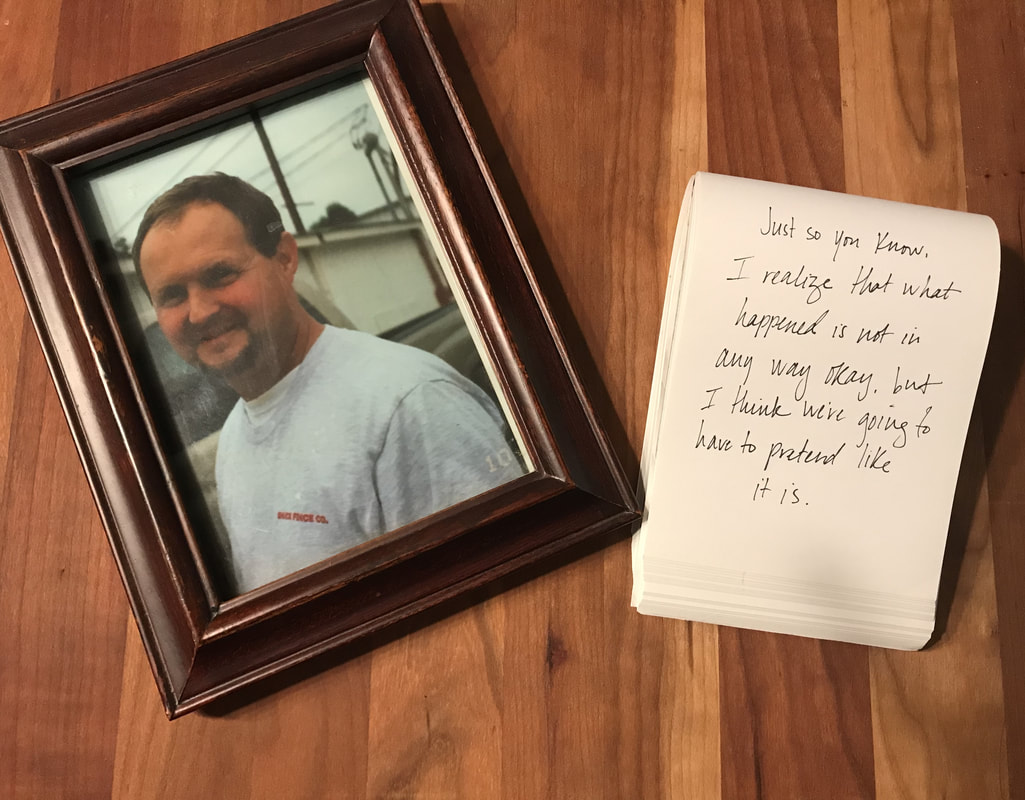
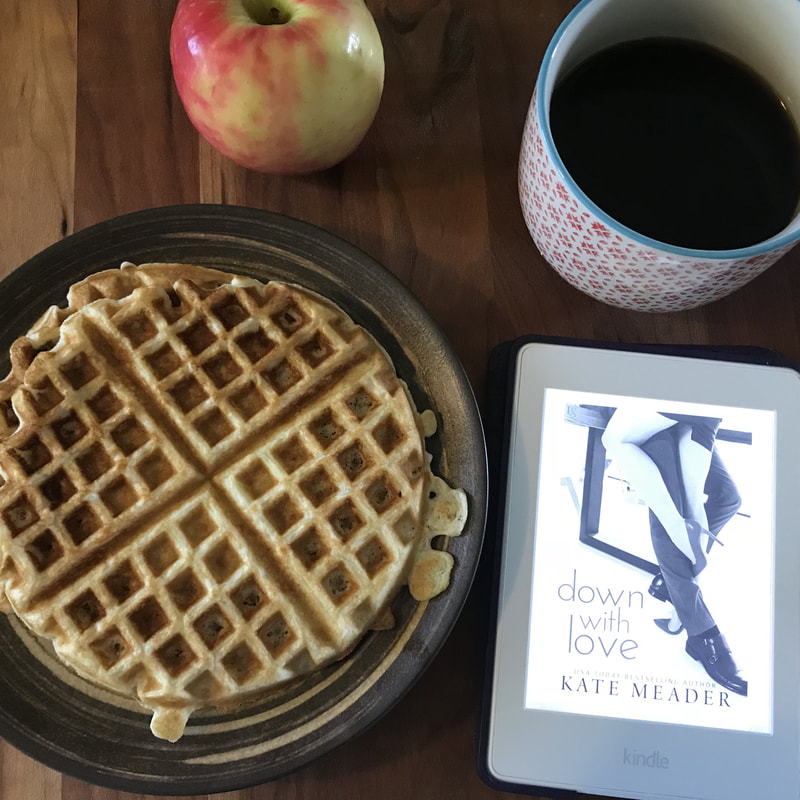
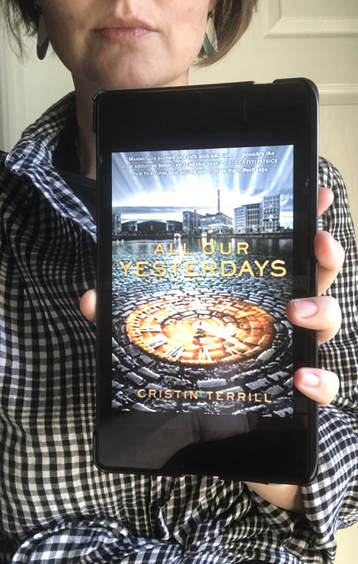
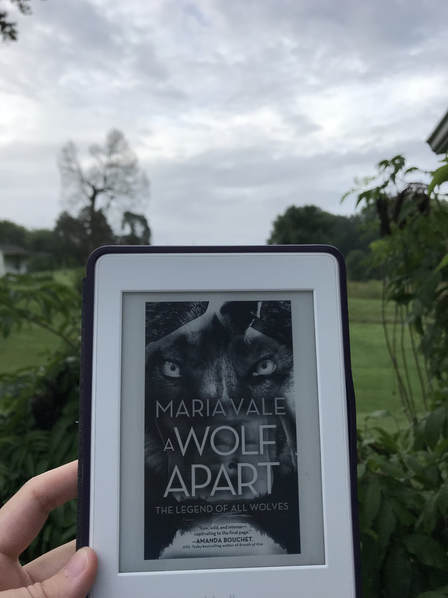
 RSS Feed
RSS Feed
